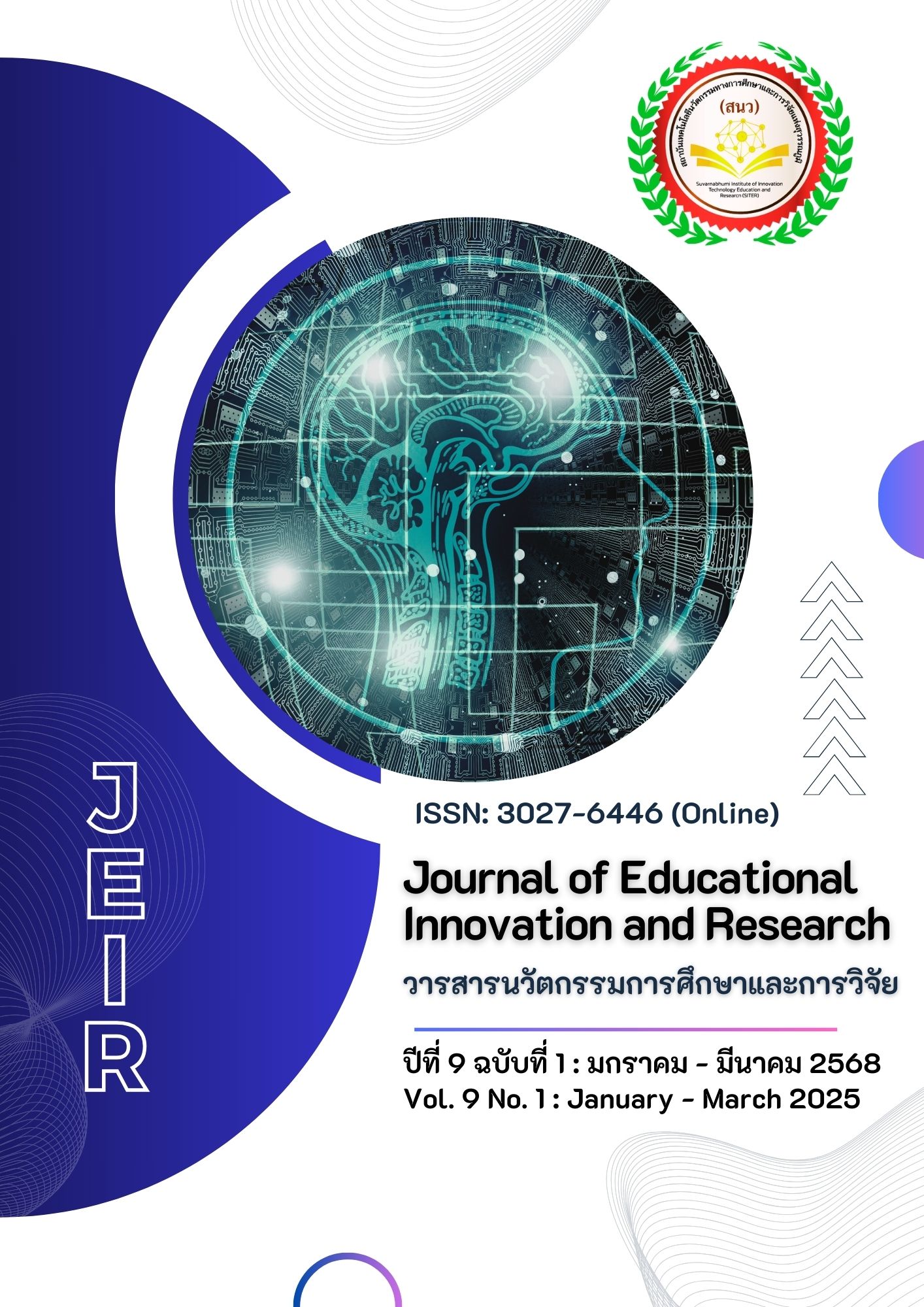The Needs for Instructional Supervision of Unplugged Coding Teaching in Lower Primary Programs in Schools under Samut Prakan Primary Education Area Office 2
Main Article Content
Abstract
The objective of this study was to examine the needs for instructional supervision of unplugged coding teaching in lower primary programs. The population consisted of 71 schools under Samut Prakan Primary Education Area Office 2. This research was the usage of a quantitative method and using the concept of teaching as a research framework consists of 1) Transformation of curriculum to instruction, 2) Instructional activity management aspects, 3) Media and media development and 4) Instructional measurement and evaluation. The informants from each school involved the head of the Science and Technology subject area and 3 computational science teachers in the lower primary program (Level 1 to 3). Experts assessed content efficiency with an index of consistency (IOC) of 0.67-1.00. A questionnaire was employed to collect the data of the needs for instructional supervision of unplugged coding teaching in lower primary programs in schools under Samut Prakan primary education area office 2, which was then analyzed via the calculations of means, standard deviations, and Modified Priority Needs Indices (PNImodified). It was found that the instructional supervision aspect with the most highly needed was the Transformation of Curriculum to Instruction (PNImodified = 0.229). This was followed by the Instructional Measurement and Evaluation (PNImodified = 0.203) and the Instructional Activity Management aspects (PNImodified = 0.199), respectively.
Article Details

This work is licensed under a Creative Commons Attribution-NonCommercial-NoDerivatives 4.0 International License.
References
Art-in, S. (2018). Curriculum Development. (4th ed.). Khon Kaen University.
Bell, T., Alexander, J., Freeman, I., & Grimley, M. (2009). Computer Science Unplugged: school students doing real computingwithout computers. New Zealand Journal of Applied Computing and Information Technology, 13(1), 20-29.
Chantapha, S. (2019). Coding For ALL. The Institute for the Promotion of Teaching Science and Technology Magazine, 47(219), 1-6.
Relkin, E., de Ruiter, L.E. & Bers, M.U. (2021). Learning to code and the acquisition of computational thinking by young children. Tufts University, USA http://doi.org/10.1016/j.compedu.2021.104222
Huang & Looi (2021). A critical review of literature on “unplugged” pedagogies in K-12 computer science and computational thinking education. Computer Science Education, 31(1), 83-111. https://doi.org/10.1080/08993408.2020.1789411.
Kotsopoulos, D., Floyd, L., Khan, S., Namukasa, I. K., Somanath, S., Weber, J., & Yiu, C. (2017). A Pedagogical Framework for Computational Thinking. https://link.springer.com/article/10.1007/s40751-017-0031-2
Nationnal Institute of Educational Testing Service. (2020, November 5). Ordinary National Educational Test : O-Net Primary 6. http://www.newonetresult.niets.or.th/AnnouncementWeb/Login.aspx
Nishida, T., Bell, T., Kanemune, S., Idosaka, Y., Namiki, M., & Kuno, Y. (2009). A CS Unplugged Design Pattern. https://dl.acm.org/doi/pdf/10.1145/1539024.1508951
Office of the Basic Education Commission. (2018). Indicators and core learning content Science learning group (revised edition 2017) according to the Basic Education Core Curriculum 2008. Bangkok.
Office of the Ecucation Council. (2020). Lessons extracted, CODING teaching activities and innovation creation: Developing learners to have the desired characteristics of Thai people 4.0 according to national educational standards. Bangkok.
Office of the Ecucation Council. (2021).Guideline for promoting teaching and learning in computational science (Coding) to develop learners’ skills in the 21st Century. Bangkok.
Ottenbreit-Leftwich & Kimmons (2023). Computational Thinking. https://open.byu.edu/k12handbook/ computational_thinking
Peter J. Rich, Bartholomew, S., Daniel, D., Dinsmoor, K., Nielsen, M., Reynolds, C., Swanson, M., Winward, E., & Yauney, J. (2022). Training Computational Thinking: Game-Based Unplugged and Plugged-in Activities in Primary School. https://www.researchgate.net/publication/320491120
Regional Education Office 2. (2020, December 7). Report on the results of government inspections and monitoring and evaluation of educational provision of the Ministry of Education. Fiscal year 2020. Round 2. http://www.reo2.moe.go.th/home/images/book/2563/2563-InspectReport2-2563.pdf
Regional Education Office 8. (2020, April 16). Research report on a project to study approaches to teaching and learning about coding (Coding). http://www.reo8.moe.go.th
Rodriguez, Rader & Camp (2016). Using Student Performance to Assess CS Unplugged Activities in a Classroom Environment. https://dl.acm.org/doi/pdf/10.1145/2899415.2899465
Rodriguez, B., Kennicutt, S., Rader, C., & Camp, T. (2017). Assessing Computational Thinking in CS Unplugged Activities. Brandon SIGCSE '17: Proceedings of the 2017 ACM SIGCSE Technical Symposium on Computer Science Education March 2017, 501-506.
https://doi.org/10.1145/3017680.3017779
Samut Prakan Primary Education Area Office 2. (2020). Summary of the results of the supervision and monitoring of computational science (Coding) learning management for the year 2020.
The Institute for the Promotion of Teaching Science and Technology. (2017). Guide to using the basic science curriculum Science learning group (revised edition 2017) according to the Basic Education Core Curriculum 2008, technology content (Computational Science) primary and secondary level. Bangkok.
The Institute for the Promotion of Teaching Science and Technology. (2021, December 3). Learning activity set (For teachers) Science and Technology learning group Technology content (Computational Science) Semester 1, Grade 2, Personal Project of Her Royal Highness Princess Maha Chakri Sirindhorn Her Royal Highness Princess Maha Chakri Sirindhorn Princess Maha Chakri Sirindhorn Satellite Distance Education Foundation Under the Royal Patronage. https://www.scimath.org/ebook-technology/item/12566-1-1


